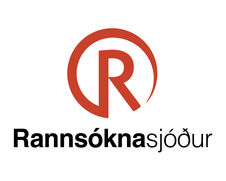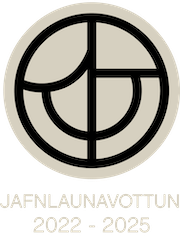„Mansal er þungt orð“: Bissá-gíneaskir Kóranskólanemendur í Senegal - verkefni lokið
Fréttatilkynning verkefnisstjóra
The research aimed to explore local responses to claims of child trafficking in Guinea-Bissau with a focus on the implementation of two anti-trafficking activities, that is, a ban on begging and repatriation.
Questions raised were: What are the views, involvement and experiences of the Quranic school teachers who are accused of child trafficking, the boys who are the victims, their parents and other community members? What are the opinions of the representatives of local and international non-governmental organisations (NGOs) implementing anti-trafficking activities? Are repatriation and ban on begging effective measures to fight child trafficking? The data, unique in scope and content, has been collected during long-term engagement with the groups involved since 2009 and with periods of shorter intensive data collection periods from 2010 to 2020. The applicant (HB), a Bissau-Guinean anthropologist, has a profound knowledge about the social and cultural context, speaks the local languages and has long experience of anthropological fieldwork on contested issues.
The research gives voice to Fula parents in Guinea-Bissau, who are eager to send sons to Quranic schools in Senegal, hoping they will ‘become somebody’. The Fula, in general, but in particular a sub-group that consists of descendants of slaves and referred to as Fula Djihaabe, perceive learning the Quran as liberation. The parents, angered by global actors classifying the practice as child trafficking, denounce the anti-trafficking activities, not least repatriation. With silent resistance, the parents keep on sending sons to Senegal to seek knowledge and ‘fight ignorance’ through religious education. In Senegal, the authorities respond to threats of cutting foreign aid with bans on begging, yet unevenly enforced. During periods of firm implementation, the begging children suffer from fear and hunger. Similarly, Quranic schoolboys who survived through alms seeking in Guinea-Bissau suffered hunger during the state of emergency declared in the wake of the COVID-19 pandemic. Obviously, preventing begging with lockdown or ban on begging without compensatory measures leave the beggars hungry.
The findings indicate that repatriation benefits some actors while those it aims to help are hurt. The non-governmental organisations (NGOs) keep their business going and “capture” boys for repatriation. Some marabouts and parents increasingly use it as free transport for boys to Guinea-Bissau in line with seasonal labor demands. Many repatriated boys return to Senegal to escape the stigma, rejection, and mistrust attached to repatriation at family and community levels. Some keep on with Quran studies, while others live on the street together with additional village boys who follow them, thereby creating a vicious circle. The authorities benefit through goodwill from the international community; nonetheless, the marabouts are not prosecuted. The marabouts are respected community leaders empowered with symbolic capital and keep their position as the masters of the game.
Theoretically, the research contributes to the anthropology of human rights, focusing on the concept of coloniality interfering with human rights implementation at the global and local levels. It sheds light on how power struggles, embedded in coloniality, between international and local actors and within the local community can unfold with unforeseen consequences. Practically, the research contributes knowledge for implementing more appropriate measures in collaboration with local populations to enhance the conditions of life of children in vulnerable situations.
Information on how the results will be applied
Accusing the marabouts, who are religious community leaders, of trafficking of Quranic school students is a sensitive issue in Guinea-Bissau. The accusations emerged in a context of ascending identity politics and religious extremism at global and local levels. Understanding this complex issue is crucial to ease conflicts and frustrations and formulate appropriate policies to protect the children. The findings reveal that the anti-trafficking actions ban on begging and repatriation, claimed to protect the Quranic school children, were unsuccessful and brought collateral damage. The research consolidates the fact that actions should rest on local research on the context and situation of the involved children, rather than assumptions about their communities rooted in coloniality. The research findings, which have been and will be disseminated beyond the academic audience, will hopefully contribute to a revised strategic plan for the protection of Quranic school children formulated in collaboration with the children involved, their parents, communities, and religious leader.
A list of the project’s outputs
Following articles will be included in the PhD thesis, supported with one years’ funding of doctoral studies from the IRF, with payments distributed within the periods May 2019–July 2020 and August 2021-February 2022:
1. Einarsdóttir, J., and Boiro, H. 2016. Becoming somebody: Bissau-Guinean talibés in Senegal. The International Journal of Human Rights, 20(7), 857-874. https://doi.org/10.1080/13642987.2016.1192532
2. Boiro, H., and Einarsdóttir, J (2018). “A vicious circle”: Repatriation of Bissau-Guinean Quranic schoolboys from Senegal. Journal of Human Trafficking. http://dx.doi.org/10.1080/23322705.2018.1521643
3. Boiro, H., Einarsdóttir, J., and Gunnlaugsson, G (2021). Impact of the COVID-19 pandemic on the life of Bissau-Guinean religious (Quranic) schoolboys during a state of emergency: a qualitative study. BMJ paediatrics open, 5(1), e001303. http://dx.doi.org/10.1136/bmjpo-2021-001303
4. Boiro, H., and Einarsdóttir, J (ms). Marabouts in the making: education and carrier of Muslim religious leaders (submitted to Journal of Religion in Africa).
5. Boiro, H., and Einarsdóttir, J (ms). Ban on begging: A successful measure against child trafficking?
HB has co-authored the following publications during the funding period:
1. Gunnlaugsson, G., N‘dure Baboudóttir, F., Baldé, A., Jandi, Z., Boiro, H. and Einarsdóttir, J. Public or private school? (2021). Determinants for enrolment of adolescents in Bissau, Guinea-Bissau. International Journal of Educational Research, 101851. https://doi.org/10.1016/j.ijer.2021.101851
2. Bollom, J., Baldé, A., Jandi, Z., Boiro, H., Einarsdóttir, J., and Gunnlaugsson, G. (2021). Social determinants of narcotics use susceptibility among school-attending adolescents in Bissau, Guinea-Bissau: a cross-sectional analysis. Adolescents 1(3): 306-320. https://doi.org/10.3390/adolescents1030023
3. Gunnlaugsson, G., Whitehead, TA., Ndure Baboudóttir, F., Baldé, A., Jandi, Z., Boiro, H., and Einarsdóttir, J. (2020). Use of digital technology among school-attending adolescents in Bissau, Guinea- Bissau. International Journal of Environmental Research and Public Health (IJERPH). 17(23), 8937. https://doi.org/10.3390/ijerph17238937
4. Durrans, S., Last, A., Boiro, H., Goncalves, A., Mabey, D., and Greenland, K. (2019). "Moving like birds": A qualitative study of population mobility and health implications in the Bijagós Islands, Guinea Bissau. Social Science & Medicine, 230, 204-213. https://doi.org/10.1016/j.socscimed.2019.03.019
HB was the presenter and first author of the following presentations:
1. Boiro, H., and Einarsdóttir, J. (2021). Bissau Guinean Quran schoolboys begging in times of COVID-19: Qualitative study. In: Skólakerfið, ungmenni og heimsfaraldur. Þjóðarspegillinn 2021. Rafræn ráðstefna í félagsvísindum, University of Iceland, Reykjavík, 29 October 2021. https://thjodarspegillinn.hi.is/event/skolakerfid-ungmenni-og-heimsfaraldur/
2. Boiro, H. (2021). Marabouts are the masters of the game. Seminar for Doctoral Students, Faculty of Sociology, Anthropology and Folkloristics, University of Iceland, in Neskirkja, Reykjavík, 8 October 2021,
3. Boiro, H., Gunnlaugsson, G., and Einarsdóttir, J. (2021). Religious studies on an empty stomach: child beggars in times of COVID-19 in Guinea-Bissau. In Menntakvika. Rafræn ráðstefna í menntavísindum. Málstofa: ‘Menningarheimar og skólastarfið, University of Iceland, 15 October 2021. https://menntakvika.hi.is/malstofa/menningarheimar-og-skolastarfid/
4. Boiro, H., Einarsdóttir, J., and Gunnlaugsson, G. (2021). Child beggars in times of Covid in Guinea-Bissau. In: INRICH 12th Annual Workshop, Rotterdam, The Netherlands, Emerging challenges in child health inequalities research: Unequal impact of climate change and of COVID-19 on child health, and parent/child involvement in research. Virtual conference, 3-5 June 2021. https://inrichnetwork.org/workshops/
5. Boiro, H., and Einarsdóttir, J. (2019). “Messy shame and distrust: the repatriation of Bissau-Guinean Quranic schoolboys in Senegal”, Edinburgh University, Edinburgh 11-14 Jun 2019. See: https://ecasconference.org/2019/panels#
6. Boiro, H. (2019). Local responses to criminalization of customs in Guinea-Bissau. 13. ráðstefnan um íslenska þjóðfélagið Háskólanum á Hólum, 16-17 May 2019.
Heiti verkefnis: „Mansal er þungt orð“:
Bissá-gíneaskir Kóranskólanemendur í Senegal/”Trafficking is a heavy word”:
Bissau-Guinean Quranic school students in Senegal
Verkefnisstjóri: Hamadou
Boiro, Háskóla Íslands
Tegund styrks: Doktorsnemastyrkur
Styrktímabil: 2019
Fjárhæð styrks: 6,615 millj. kr. alls
Tilvísunarnúmer Rannís:
195957


